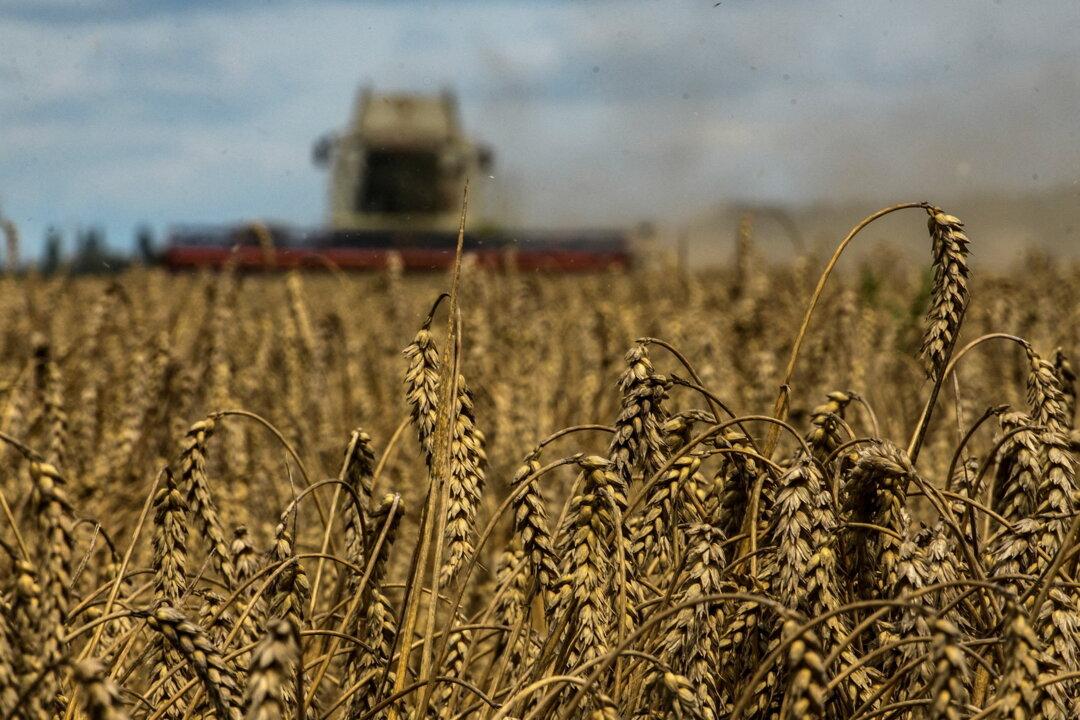Wheat prices spiked after a Russian announcement that it would withdraw from the Black Sea export agreement, a decision which is expected to have a negative impact on the market.
On Monday, the most active contract on the Chicago Board of Trade (CBOT) rose by 5.7 percent as of 4:16 a.m. EDT, to trade at around $8.77 a bushel. Prices earlier had hit a high of $8.93 a bushel, which is its highest level since Oct. 14. Corn and soybean prices were also up.





